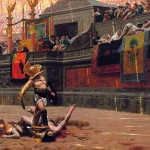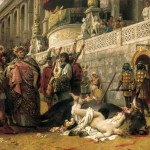I received some fine gifts on Christmas, but I do think there is one gift that I value above all the others.
It was not expensive but it was something I think is rather fitting for me to own.

You can see it to the right. Yes, that’s Pinocchio. It is a simple wooden toy, but I was thrilled to get it. There is something about this wooden puppet. The Disney version had to do much work to make him likable. However in the original, he is basically the worst person ever.
As soon as he gets feet he takes off running, and Geppetto gets arrested because it’s assumed he’s mistreating the poor puppet. Pinocchio kills a Cricket who tries to instruct him on how to be good and avoid hedonism by throwing a hammer at his head, and the story goes from there. I won’t go into all the details of the plot, because it’s a remarkably strange book. Filled with bizarre moments, and it is clear that this puppet, is no hero and isn’t meant to be endearing at all. Yet you still read about him and are curious about what will happen next.
Misfortune piles on after misfortune, and his life is so bad, that at one point he’s telling a snake all his troubles and the snake begins to laugh at him so hard an artery bursts and he dies laughing (Yes, I told you this book is super strange). However, in the end Pinocchio finally learns and eventually becomes a good puppet and then in turn becomes a good boy.
This story fascinates me, its persistence, everything about it. I remember being thrilled when I found out John Paul I, felt the same way and included it in his book called Illustrissimi or “To the Illustrious Ones”. This book is out of print, but you can find used copies pretty easily online. It is a series of letters written by Pope John Paul I to characters (both real and not real) and the letters grow into homilies.
The Letter to Pinocchio begins so:
“I was seven years old when I read your Adventures for the first time. I couldn’ t tell you how much I liked them nor how many times I have read them again since then. The truth is that in you, boy, I recognized myself; in your atmosphere, my atmosphere…
I, however, have grown old. I already am, if it is possible to speak like that, to the opposite side of the barricade. I can’ t recognize myself in you any more, but in your advisers: the teacher Gepeto, Beppe Grillo, the Blackbird, the Parrot, the Glow-worm, the Crab, the Marmot.”
I know very little about John Paul I, I don’t ever remember how I came across this book, but the fantastic elements that he toys with in this letter thrilled me when I first discovered it. It made me return to Pinocchio, and reread his tale as well. After reading the story I returned to the letter, and then back to the story.
This passage in particular was something I go back to and read:
Yes, you will breathe antireligious objections as the air is breathed, at school, in the factory, in the cinema, etc. If your faith is a lot of good wheat, a whole army of mice will come to take it by assault. If it is a suit, one hundred hands will try to tear it. If it is a house, the pick will want to demolish it stone by stone. You will have to defend yourself: nowadays, from the faith it is only kept what it is defended.
And remember two things:
First: all certainty deserves esteem, although it does not share the evidence of mathematics. The existence of Napoleon, Caesar or Carlomagnus does not enjoy the certainty as 2 + 2 = 4, but for that reason it does not stop being true with a human, historical certainty. In the same way, it is also true Christ existed, the apostles saw Him dead and then resuscitated.
Second: man needs the sense of mystery. From anything we know everything, Pascal said. I know many things about myself, but not all. I do not know exactly what is my life, my intelligence, the degree of my health, etc. Then, how can I try to understand and know all about God?
The more frequent objections you will hear will go straight against the Church. Perhaps an anecdote told by Pitigrilli will be able to help you. In London, at Hyde Park, a preacher is speaking outdoors. Sometimes, he is interrupted by a ruffled and dirty individual. “The Church has been existing for already two thousand years – says suddenly the individual – and the world is plenty of thieves, adulterers, killers”. “You are right – the preacher replies -. But also since two million centuries ago water exists in the world and look how is your the neck like”.
In other words: there have been bad Popes, bad Priests, bad Catholics. But what does it mean that? That the Gospel has been applied? No, all the opposite. In those cases, the Gospel has not been applied.
My Pinocchio, there are two famous sentences on the young people. I recommend you the first one, by Lacordaire: “Have an opinion and assert it”. The second one, by Clemenceau, and I do not recommend it at all: “He has no ideas, but he defends them passionately”.
This story, and this letter, plays into many themes I am already interested in. That fantastic region where impossible things happen. Where a puppet can come to life and a pope may write to a puppet advising him on how to proceed in his life. There is a great deal of wisdom found in this book, and the Pope’s letter.
Image used is public domain / I took that photo.















